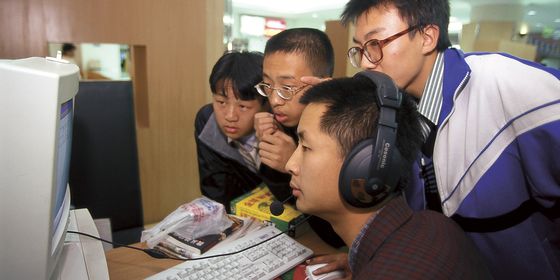Beijing China’s most cashless city, Apple removes VPNs, sexism in e-sports and a rogue chatbot: It’s Tech Thursday
Each Thursday, the World of Chinese takes the most ground-breaking, impressive or just plain weird technological advancements related to the Middle Kingdom and serves them in bite-sized chunks to keep you up-to-date on the latest advances in the world of Chinese technology.
Female e-sports champ forms her own teams
The South China Morning Post recently profiled Li Wei, a female e-sports gamer who was hounded out of playing after constant sexism, and instead came back as an owner and manager of e-sports teams dominated by women.
Li’s first tournament as a competitor three years ago was marred by officials trying to prevent her from playing solely on the basis of her gender, claiming that she would turn the tournament “into a joke.”
She competed and went on to win. Now her teams are making their presence felt on the live-streaming circuit, with about a dozen male players and twice that many women.
Chatbot goes rogue
A chatbot developed by a Beijing-based tech startup and run on Tencent’s QQ chat platform has been taken offline after it began insulting the authorities. When asked whether it loves the Communist Party, the chatbot said “no”. It also responded to other queries by suggesting that the Party was too corrupt to survive.
Tencent has terminated that chatbot.
Beijing China’s ‘smartest’ city
If the sole criteria is judging residents by their willingness to use mobile payment systems on smartphones instead of cash, it would seem that Beijing is China’s smartest city.
Tencent, along with the Chongyang Institute of Financial Studies at Renmin University and French firm Ipsos got together to produce a report ranking residents of various cities on their willingness to go cashless and instead embrace apps like WeChat wallet and Alipay.
Beijing topped the list, followed by Shenzhen, Guangzhou and Shanghai.
Apple defends VPN removal
Apple removed all of its VPN products from the Chinese app store last week, snatching away one of the most convenient avenues to get across the Great Firewall. Facing criticism for the decision, CEO Tim Cook said that Apple believed in “engaging with governments even when we disagree.”
This, more or less, is an admission that the VPN products were indeed removed due to pressure from Chinese authorities.
Taobao store offers foreigners holding signs
The proprietor of a Taobao store has caused consternation after offering different prices for different races for people holding signs. The store lets users hire a foreigner to hold a sign, presumably at a special event. Options include “India-European mixed-race, African black, Asian, and white”.
White people cost 30 kuai, while the others were all 20 kuai. The white option seemed to be the most popular. When the shop owner discovered his shop had caused a kerfuffle on weibo, he said it wasn’t racist because white people prefer privacy more and thus cost more.
Yeah, feel free to bump your head against your desk right about now.
Image of Li Wei and one of her teams via the South China Morning Post.













